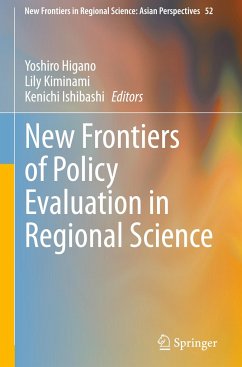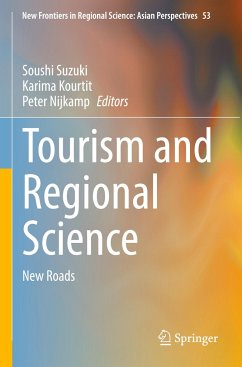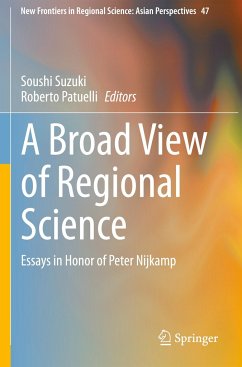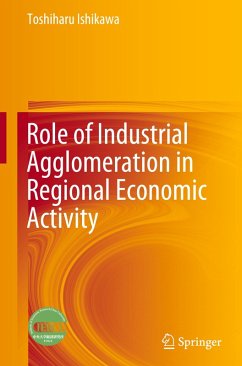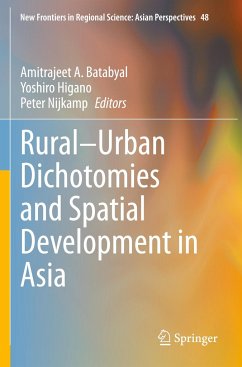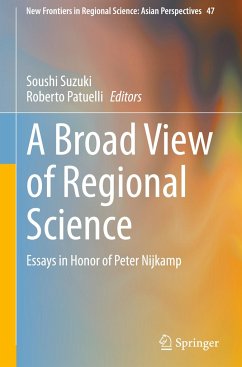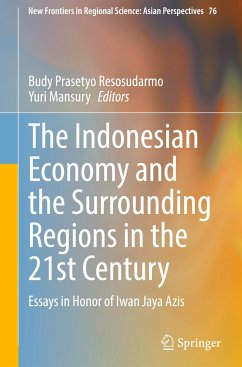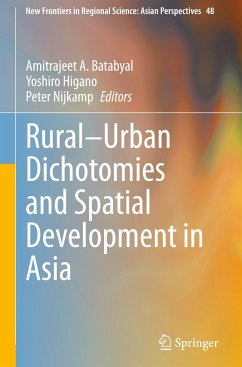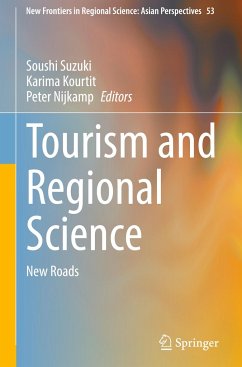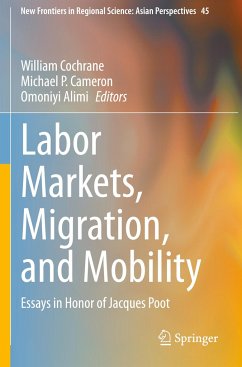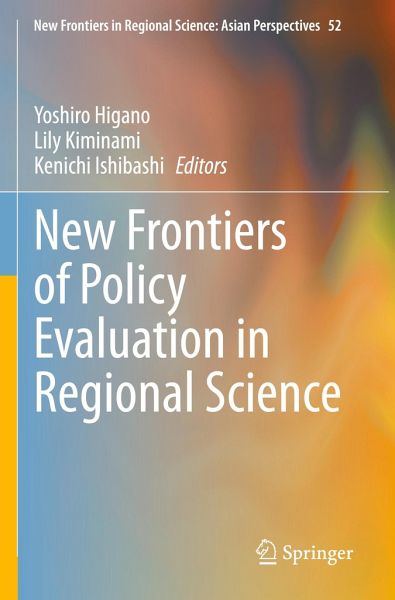
New Frontiers of Policy Evaluation in Regional Science
Versandkostenfrei!
Versandfertig in 6-10 Tagen
83,99 €
inkl. MwSt.

PAYBACK Punkte
42 °P sammeln!
This book is especially valuable for its policy evaluation studies using both a theoretical model for policies carried out at national and regional levels and for gathering policy evaluation studies in diverse disciplines by empirical study.Policy analysis shown here employs theoretical models such as an international trade model, an optimal tariff, and spatial reorganization. At the same time, factors in well-being are taken into consideration with land development, changes in migration and local economies by natural disasters, validation of efficiency for emission control methods, the relati...
This book is especially valuable for its policy evaluation studies using both a theoretical model for policies carried out at national and regional levels and for gathering policy evaluation studies in diverse disciplines by empirical study.
Policy analysis shown here employs theoretical models such as an international trade model, an optimal tariff, and spatial reorganization. At the same time, factors in well-being are taken into consideration with land development, changes in migration and local economies by natural disasters, validation of efficiency for emission control methods, the relationship between cyberspace and physical space in urban networks, and NPOs' investment activities.
The empirical research reported in this volume analyzes Japan, China, and Asian-Pacific cities. In the case of Japan, studies focus on the finances of local governments, the real estate industry, the role of consumer cooperatives in a food system, and agriculture and its productivity in hilly and mountainous areas. As well, the effects of industrial clusters in megacities and investment in high-speed railways and prediction of human behavior during an earthquake are studied. In China's case, studies focus on food policy and the effect of ecology and environment on migration policy. For Asia-Pacific cities, studies show performance rankings of "super cities" in the region.
The book defines the frontier of policy evaluation following a middle path between theoretical study and empirical study with regard to evaluation. In addition, the book contributes to an understanding of the relationship between the goals and targets of sustainable development. This book is highly recommended for graduate students, policymakers, and researchers concerned with policy evaluation.
Policy analysis shown here employs theoretical models such as an international trade model, an optimal tariff, and spatial reorganization. At the same time, factors in well-being are taken into consideration with land development, changes in migration and local economies by natural disasters, validation of efficiency for emission control methods, the relationship between cyberspace and physical space in urban networks, and NPOs' investment activities.
The empirical research reported in this volume analyzes Japan, China, and Asian-Pacific cities. In the case of Japan, studies focus on the finances of local governments, the real estate industry, the role of consumer cooperatives in a food system, and agriculture and its productivity in hilly and mountainous areas. As well, the effects of industrial clusters in megacities and investment in high-speed railways and prediction of human behavior during an earthquake are studied. In China's case, studies focus on food policy and the effect of ecology and environment on migration policy. For Asia-Pacific cities, studies show performance rankings of "super cities" in the region.
The book defines the frontier of policy evaluation following a middle path between theoretical study and empirical study with regard to evaluation. In addition, the book contributes to an understanding of the relationship between the goals and targets of sustainable development. This book is highly recommended for graduate students, policymakers, and researchers concerned with policy evaluation.



